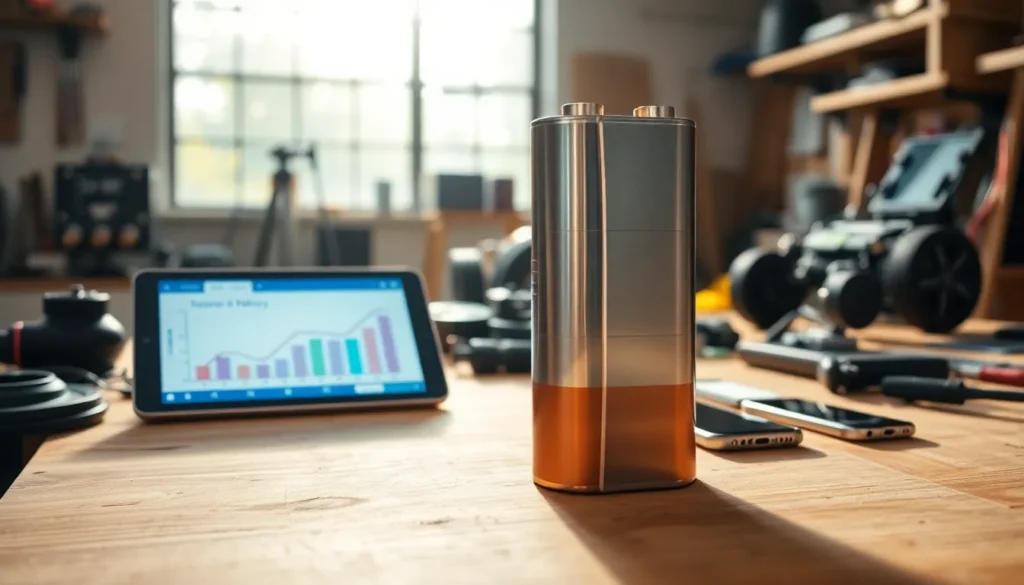Table of Contents
ToggleIn an increasingly digital world, the importance of power retention cannot be overstated. Devices ranging from smartphones to electric vehicles rely on effective power retention to ensure optimal performance and user satisfaction. Understanding the nuances of power retention is essential for manufacturers and consumers alike, as it directly impacts the efficiency and longevity of electronic devices. This article delves into the concept of power retention, factors that affect it, strategies for improvement, and future trends shaping this imperative aspect of technology.
Understanding Power Retention

What Is Power Retention?
Power retention refers to the ability of a device to hold and maintain energy over time. This concept is particularly relevant in the context of batteries, capacitors, and other energy storage technologies, where energy loss can severely affect performance. Devices that experience high levels of power retention are able to use stored energy efficiently when needed, thereby enhancing their operational capabilities.
Importance of Power Retention in Devices
The role of power retention is paramount for various electronic devices. For instance, in smartphones, robust power retention translates to longer battery life, allowing users to stay connected for extended periods without frequent recharges. Similarly, in the realm of electric vehicles, the efficiency of power retention can determine the range and usability of the vehicle. As technology continues to advance, consumers increasingly expect devices that not only perform well but also maintain their energy efficiency over time.
Factors Affecting Power Retention
Battery Chemistry and Power Retention
One of the most critical aspects of power retention is the chemistry of the batteries used in devices. Lithium-ion batteries, for example, are known for their high energy density and relatively low self-discharge rates, making them a popular choice for portable electronics. But, the specific composition of the battery can significantly influence how well it retains power. Factors such as temperature, charge cycles, and even the age of the battery play a crucial role in determining efficiency.
Environmental Impact on Power Retention
Environmental conditions also significantly affect power retention. High temperatures can lead to accelerated degradation of battery materials, while colder climates may increase internal resistance. Also, humidity can affect the electronic components within a device. Understanding these environmental impacts is essential for both consumers who wish to maximize the longevity of their devices and manufacturers aiming to design products that perform well under various conditions.
Improving Power Retention in Devices
Best Practices for Maximizing Power Retention
Several strategies can be employed to enhance power retention. First, maintaining optimal charging practices, such as avoiding overnight charging or using the device until it’s completely drained, can prolong battery life. Also, employing energy-saving modes on devices can also minimize power consumption during idle periods.
Innovative Technologies Enhancing Power Retention
Technological advancements are continuously emerging to improve power retention. Companies are investing in next-generation battery technologies, such as solid-state batteries, which promise better energy density and lower risk of leakage compared to traditional lithium-ion batteries. Also, energy harvesting technologies, which capture energy from environmental sources, are being integrated into devices to enhance overall power retention.
Future Trends in Power Retention
Emerging Research and Developments
Research in power retention is vibrant, with scientists exploring new materials and chemistries that could revolutionize how power is stored and maintained. Innovations such as graphene-based batteries and advanced supercapacitors are on the horizon, offering significant improvements in energy retention and quick charging capabilities.
Potential Applications and Benefits
The implications of improved power retention extend across industries. In the renewable energy sector, better power retention can lead to more efficient energy storage solutions that can help balance supply and demand. Similarly, advancements in power retention technology can enhance the feasibility of electric vehicles, making them more accessible and practical for everyday users.
Conclusion
To conclude, understanding and improving power retention is critical for the advancement of modern technology. As devices become more integrated into daily life, the demand for efficient power retention will only grow. By investing in research and adopting best practices, both manufacturers and consumers can ensure that electronic devices not only perform well but also last longer, eventually enhancing user experiences and promoting sustainability.



